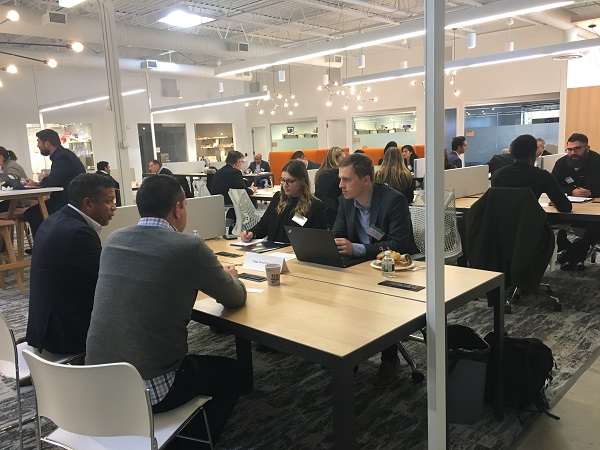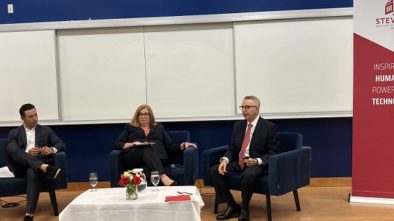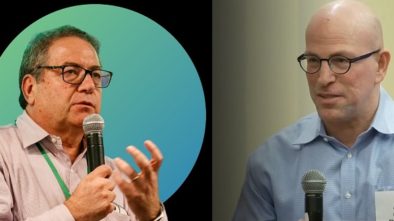Founders Find Investors at November NJEDA Founders & Funders Event, Part 2
Want to know what kind of companies are invited to attend the Founders & Funders events organized by the New Jersey Economic Development Authority (NJEDA)?
In our first article, we interviewed founders of two very different marketplace companies and another with a software solution for tracking word-of-mouth referrals. These startup execs had pitched to investors at the November 2019 Founders & Funders event.
In this story, we speak to more founders at the November 2019 event, including founders who are trying to help small businesses compete with Amazon by offering sophisticated return policies, founders of a company that wants to increase the accuracy of 3D printing with metal, and the founder of a biotech startup offering a way to speed up drug discovery.
We asked them about their companies and how their investor meetings had gone. All in all, they were very happy with the opportunity to see so many investors all at once, and to begin building relationships with them.
The NJEDA conducts these meetings twice a year, and New Jersey startups (they must be registered in New Jersey) can get on the Authority’s list for the Founders & Funders event next spring by applying here. The NJEDA brings these events to various coworking spaces and incubator/accelerator venues all over the state, as a way to highlight these spaces to the startup community.
The November meeting took place at Princeton Innovation Center BioLabs, a coworking and incubator venue associated with Princeton University that offers 31,000 square feet of shared wet and dry labs, as well as private offices.
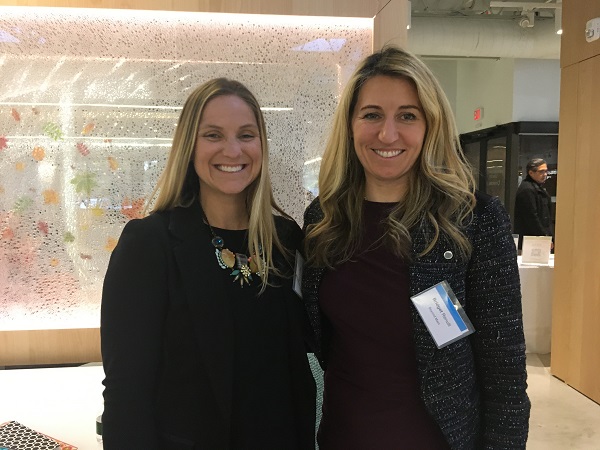
Kate Giovambattista, founder and CEO, and Bridget Renzulli, director of Strategy and Marketing of Beyond Main (Summit)
Beyond Main is a Software-as-a-Service company aimed at small businesses, helping them bridge the online–offline gap that exists today in local communities, according to Giovambattista. “We are connecting small businesses with local customers in an aggregated e-commerce experience,” she said.
“Our software supports the needs of a business owner to run their shop effectively in a low-cost, but high-impact way. We provide analytics, inventory management, customer relationship management and everything else through the final e-commerce and checkout experience.”
Beyond Main brings the business online in a templated format, and the software lets businesses offer enhanced experiences to customers — for instance, allowing them to buy online and return to the store, pick up in store, pick up curbside, or ship if needed.
We spoke to Giovambattista and Renzulli after they had gone through seven meetings with investors. “We made some really good connections,” Giovambattista said. “There seems to be a universal shared connection to what we are building and how we are building it.” They did learn that they were too early in their fund-raising process for some of the investors they spoke to.
Renzulli mentioned that they were advised to tap into accelerators, not just in New Jersey, but in other areas, as well. At least one investor gave them useful pitch advice: Get to the point faster. “That’s not something I do easily. As founders, we are sometimes too invested in the details, so it’s hard to summarize concisely,” said Giovambattista. “This has been good practice in perfecting that skill… I appreciated the feedback on how to switch the pitch to be crisper and more clear.”
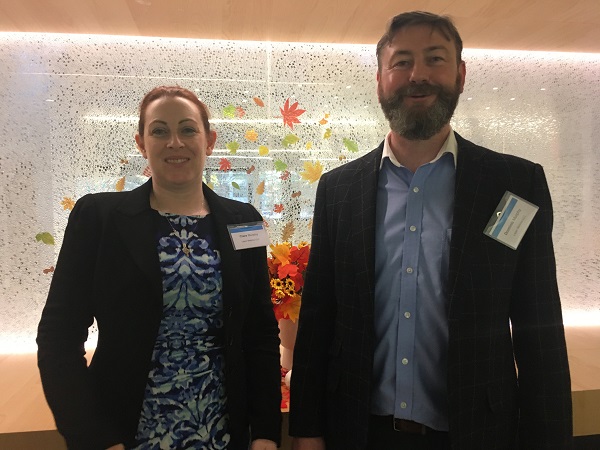
Clare Murphy, president, and Dominic Murphy, CTO, of Layer Metrics (Princeton)
Layer Metrics addresses the needs of the metal additive printing industry. Laser 3D printing of metals is a huge industry with great growth potential, but it is unreliable, Dominic said.
“Our product is used to monitor the print build quality as the piece is being made. We have an integral build integrity verification, and now we get from a situation where we’ve got a one out of ten yield to a nine out of ten yield. We are increasing the percentage of yields to 90 percent.
“Understanding that there is this problem in the industry, we went about researching the issue and using our capability and know-how to develop an instrument that actually solves the problem. This is something we invented within our own company.”
The duo had had eight meetings. “Such dense exposure to investors is really very beneficial to a startup,” Dominic said.
“Making those introductions is very challenging, and to get one-on-one time with investors, getting their feedback and getting advice as to what direction to go, was great,” said Clare. “We had multiple conversations with many investors, who all gave us good advice from their perspectives. We are going to go back and digest that and figure out answers to questions we need to address to get those investors on board.”
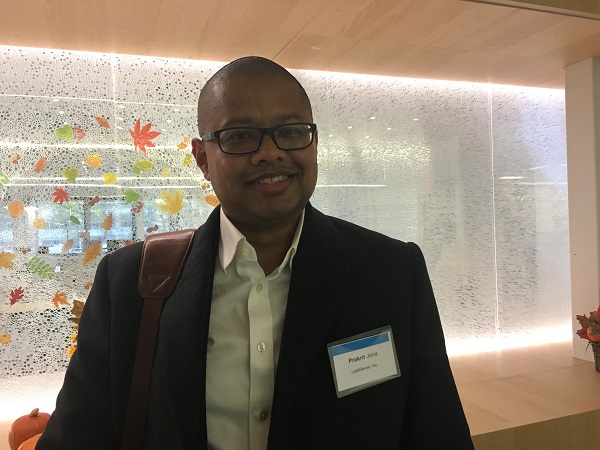
Prakrit Jena, of LipidSense (West Orange)
“I started LipidSense as a way to make drug discovery much faster,” Jena said. “We developed a sensor with which, by shining a laser on the sensor used in animal testing, the drug manufacturer can know that the drug is working and delivered as planned. They can know if it’s not working or is even toxic at a very early stage, without having to sacrifice an animal in order to come to the same answer.”
LipidSense is looking for some seed-stage funding, so it can hit some milestones, “and companies can buy our technology and start using it in house.”
Asked about the meetings with investors, Jena said, “I had a great number of meetings that were helpful in many ways. I had some investors that wanted me to follow up with them regarding funding, investors who told me what they wanted to see before they would invest in a company like mine. The state itself is putting an emphasis on biotech. I’m very happy about how there is help around in different forms for the different stages that a company goes through.”
“We moved our company to New Jersey recently and we’ve been very happy with the infrastructure and the effort being put in by the pharma companies and the officials at the NJEDA to make a bio startup a success in the state of New Jersey.”

